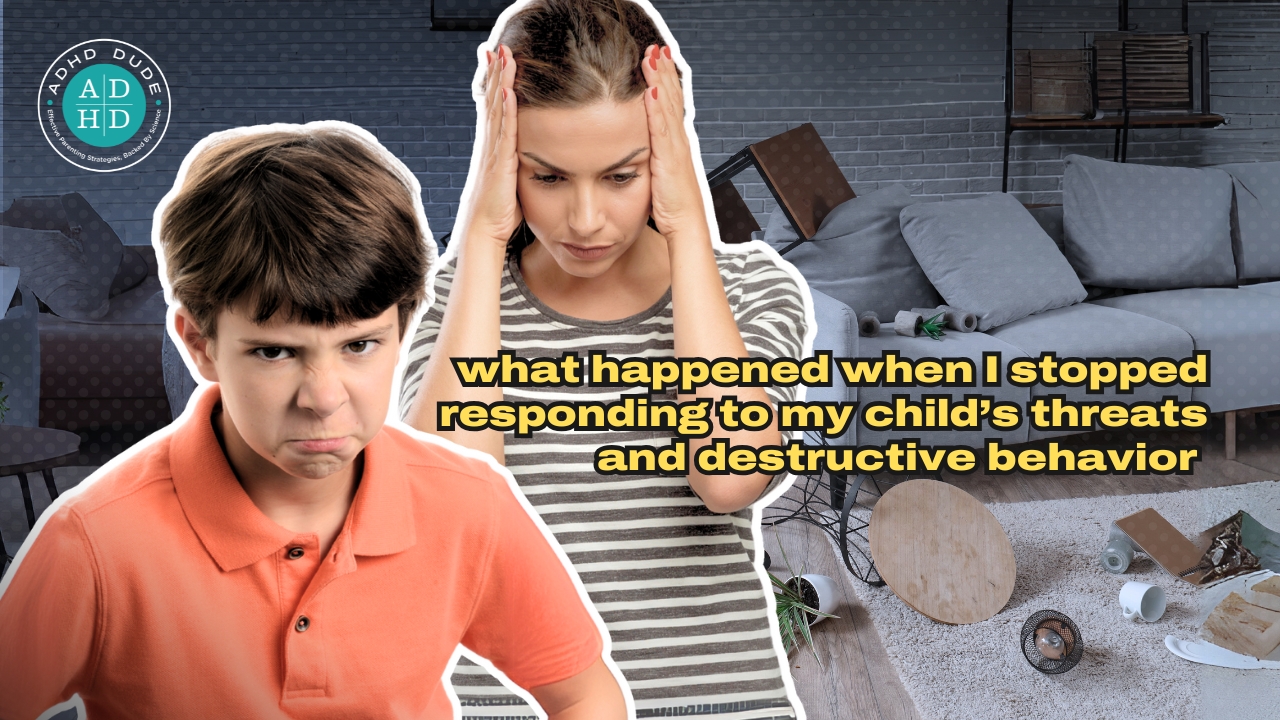Understanding and Managing Your ADHD Child’s Challenging Behaviors
My recent video addressing this very issue has sparked a vital conversation, generating numerous questions from parents seeking effective strategies. A common and pressing concern is how to respond when a child’s frustration manifests as property damage or other forms of destruction. This is a critical juncture for any parent, a point at which intervention is crucial. Having personally navigated this challenging terrain, I offer this exploration into disengaging from destructive behavior, drawing from both personal experience and established research. This isn’t about ignoring the behavior; it’s about understanding the dynamics at play and learning how to effectively break the cycle.
The Recurring Question: Addressing Destructive Acts
My recent video addressing how to manage children who struggle with the word “no” has garnered significant attention. A recurring question has emerged from viewers: “What course of action should be taken when a child engages in destructive behavior? Surely, this cannot be ignored.” This is a critical point, and one I have personally navigated. Allow me to offer my perspective.
Parental Response and Emotional Investment
Parents possess the inherent right to respond to their child’s actions, whether positive or negative. They may choose to engage, becoming emotionally invested, particularly when their child displays mistreatment towards family members or resorts to destructive acts as a means of expression. This is a reality I understand intimately. I was once highly reactive to my son’s oppositional tendencies, especially when these manifested as property damage within our home.
Learning to disengage, to cease providing an audience for these behaviors, and to regulate my own emotional responses proved to be a formidable challenge. However, I can affirm with certainty that severing this connection is paramount to mitigating and ultimately eliminating such behaviors.
Disengaging From Reactive Parenting
Disengaging from reactive parenting isn't an instantaneous transformation; it's a journey that unfolds over time. Here's what to expect:
- Disengagement is not an immediate change but a gradual process.
- Consciously withholding attention and emotional reactions from specific destructive actions leads to a gradual decrease in their frequency.
- Incidents of damage may still occur during this process.
- Avoid engaging in direct confrontations or power struggles over possessions (e.g., snatching items, repeated admonishments). Such reactions tend to escalate the conflict.
Understanding the Function of Reinforcement
A fundamental principle in managing challenging behavior lies in understanding the function of reinforcement. This principle is particularly relevant when addressing the needs of children who exhibit difficulty adhering to boundaries. For these children—those who struggle with accepting limitations, demonstrate fixated behaviors, or present with oppositional or argumentative tendencies—it is imperative to disconnect the source of reinforcement sustaining the undesirable behavior.
This necessitates a conscious withdrawal of emotional reactivity and focused attention from the specific actions targeted for change. It is crucial to emphasize that the objective is to modify the parental response to the behavior, not to neglect the child’s fundamental needs for support and connection.
Consider this how can you expect these behaviors to stop if you continually fuel them with your attention and emotional investment? There’s no simple solution. What I can share is what worked for me, a strategy supported by research on problematic behavior. This isn’t about ignoring your child; it’s about consciously choosing not to react with heightened emotion to particular words or actions.
You are not withdrawing affection or support; you are withdrawing the sustenance that perpetuates the undesirable behavior.
Join the ADHD Dude Membership Site to gain access to valuable resources and courses designed to support parents of children with ADHD.
Join Our Mailing List To Get Our Newsletter and Latest Updates
We will never SPAM.



